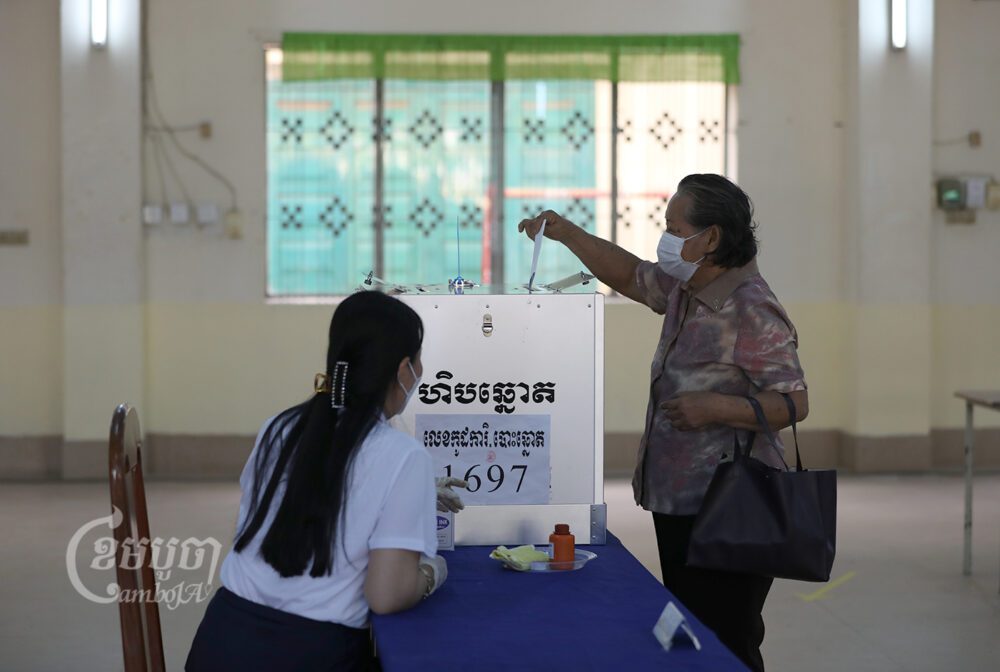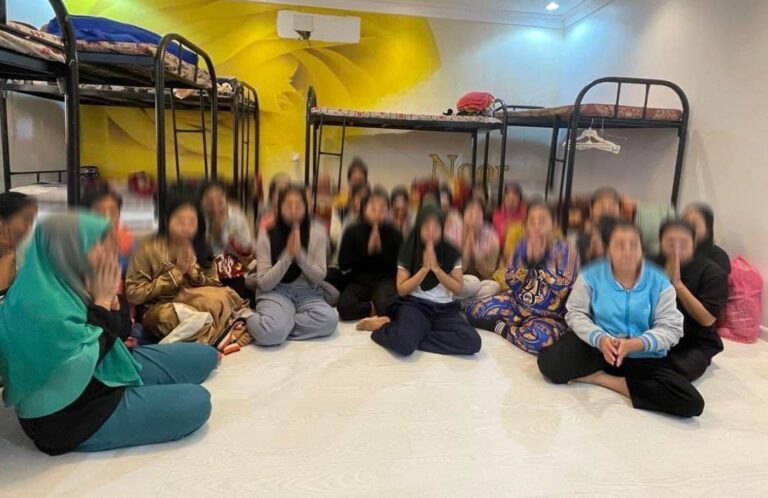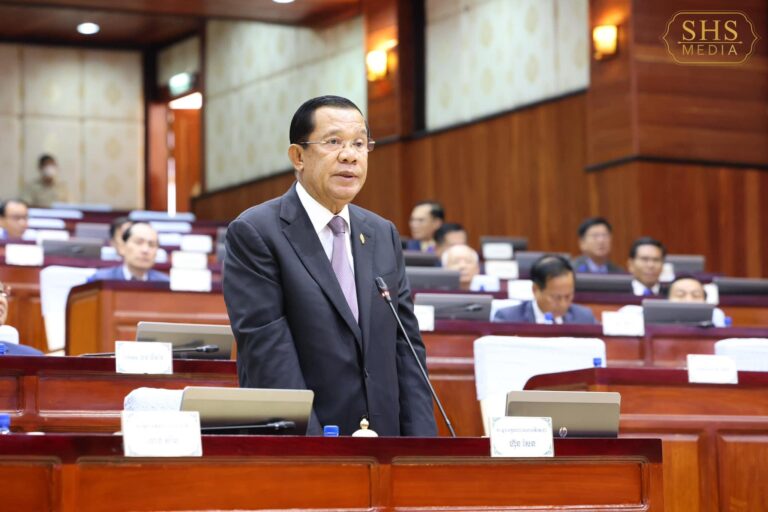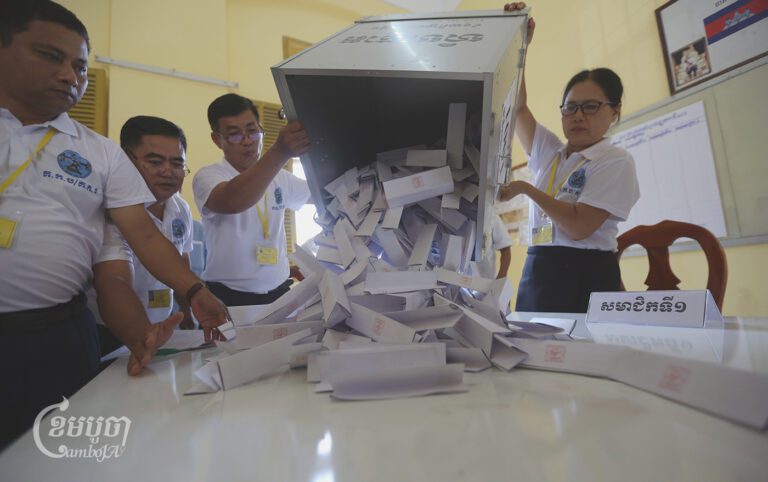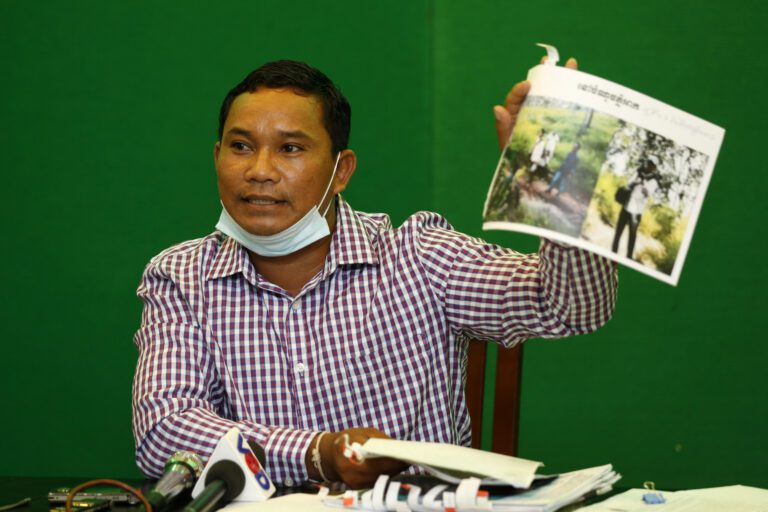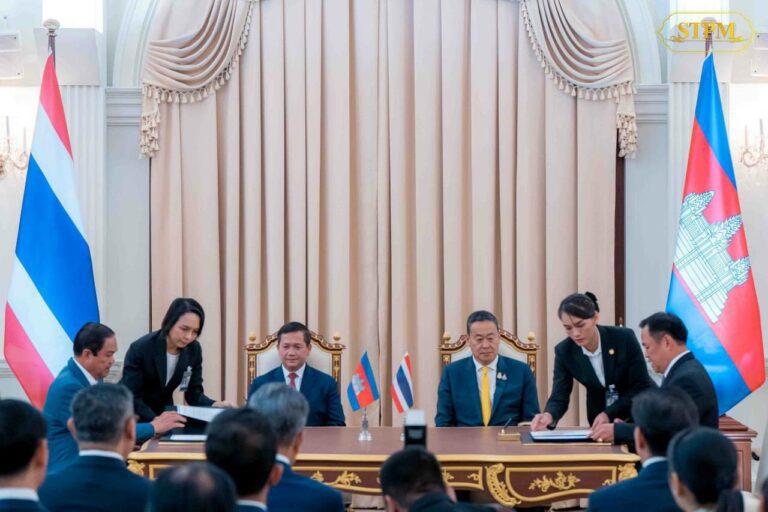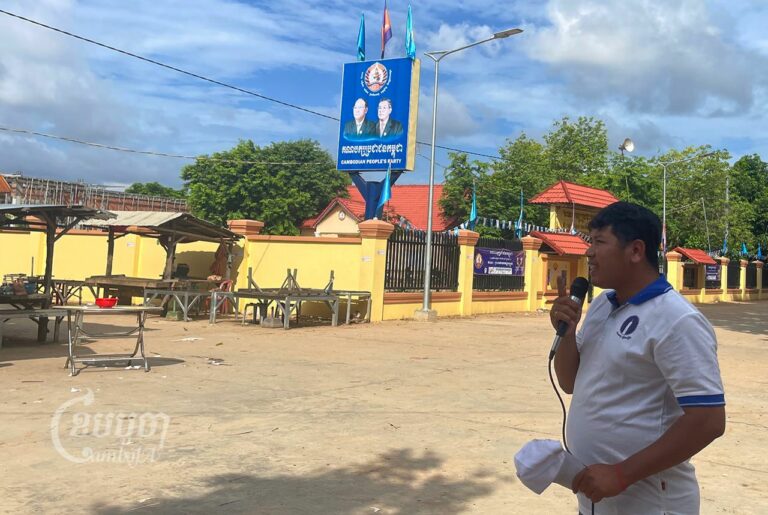Tuon Sopheara, a Cambodian migrant worker in South Korea, wants to vote in the upcoming July elections but cannot afford the plane ticket home.
“I want to go [to vote] but it is difficult,” said Sopheara, noting a roundtrip flight was around $800. “I think the election is very important because it can change our nation.”
Sopheara is one of an estimated 1 to 2 million overseas Cambodians, whom the National Election Committee (NEC) called on last week to return to vote in the July 23 elections, but civil society groups say the high costs of travel mean this is an unrealistic option for most workers.
While the government has claimed there are 1.3 million Cambodian overseas workers, the Center for Alliance of Labor and Human Rights (CENTRAL) estimates 2 million when including undocumented workers.
“[We] appeal to citizens [overseas] who wish to vote, please come to vote,” NEC spokesperson Hang Puthea told CamboJA News. He noted the NEC had sent a letter to disseminate information in embassies around the world to Cambodians living and working abroad.
Sopheara, who has been working in South Korea for two years, said he switched his factory three months ago and it would be difficult to request permission for leave and he requested the government subsidize the cost.
“If the [government] paid attention to the month of elections, for Khmer citizens, they should reduce the price of flight tickets to make it easier for us to go and return back,” he said.
CENTRAL program officer Dy Thehoya said he welcomed the call for Khmer citizens to vote in July but noted the government had not implemented any policies to assist overseas Khmer.
“If the government is willing to give opportunity and respect their rights, they [government] can organize the voting in the countries where they are living and working,” Thehoya said. Otherwise, anyone working overseas “can’t use their right in choosing their representative [leader].”
NEC spokesperson Puthea replied that the NEC cannot open overseas polling stations because “[the] laws only allow [NEC] to prepare registration and polling stations in commune/sangkats in the Kingdom of Cambodia.”
“There is no country that pays money for its citizens to come to vote, that would mean using money improperly, it will effectively be buying ballots,” Puthea said. “The NEC is an institution to implement the law and if law does not allow it, then the NEC can’t do it.”
Foreign Affairs Ministry spokesperson An Sokhoeun and Labor Ministry spokesperson Heng Sour could not be reached for comment.
Candlelight Party spokesperson Kim Souphearith said transportation for overseas workers should be provided.
“The appeal [to come vote] is good, but we must facilitate transportation from the border to their provinces respectively,” Souphearith said.
Souphearith noted that provinces like Banteay Meanchey, which has seen many residents cross the border to Thailand, will likely have diminished voter turnout.
“I used to be a lawmaker at Banteay Meanchey province, and they had lost their vote because they worked in Thailand,” he said.
Preap Sopheak, a Takeo province native working legally in a Thai factory since 2010, was reluctant to return home in July because it would “expend a lot of money” and would require taking time off work. He estimated it would cost between $100 to $200 including transportation costs and purchasing food along the way.
“We want to vote and when employers give permission, we are happy,” Sopheap said. “If they do not allow it and you still have to go, then you need to resign, what will you choose?”


